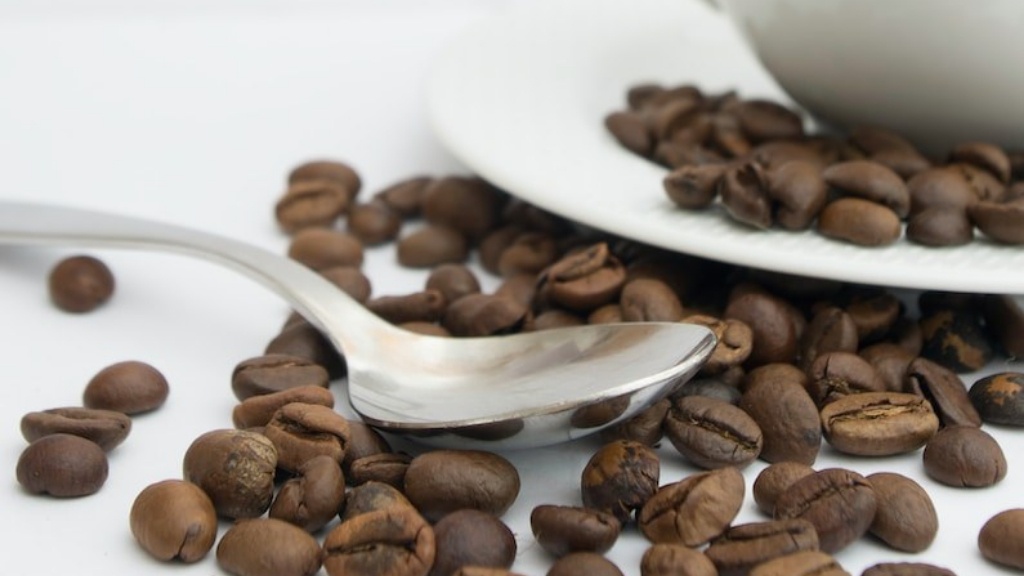Coffee as Part of South Beach Diet
Coffee and tea are integral parts of many people’s daily routine, but can they be consumed while on a South Beach Diet? South Beach is a type of diet created and popularized in the early 2000s by Dr. Arthur Agatston, a Miami-based cardiologist who sought to provide a healthier alternative to the Atkins diet. Unlike Atkins, South Beach doesn’t strictly limit the intake of carbohydrates, instead focusing on teaching people to make smarter and healthier food choices. As such, South Beach dieters try to stick to vegetables, lean proteins, dairy, fruits and whole grains.
Drinks such as coffee and tea are allowed on the South Beach Diet, but with a few caveats. Coffee must be enjoyed in a moderate capacity, without any sugar added. Agatston also allows South Beach dieters to incorporate a few teaspoons of low-fat milk or non-dairy alternative creamer; this measure helps reduce the number of calories of regular cream or whole milk. Additionally, those following the South Beach Diet should limit the number of cups of coffee they drink daily to 1-2.
Caffeine itself doesn’t hold any inherent problematics for the South Beach Diet. Caffeine is actually thought to be beneficial for dieters on South Beach, as it helps quell cravings for unhealthy menu items. However, when consumed alongside large amounts of creamer and sugar, coffee ceases to have any of its intrinsic benefit and may even act as a hindrance to dieters’ overall health. Agatston suggests dieters refrain from artificial sweeteners as well, with the exception of those kept for special occasions.
The bottom line? Enjoying coffee is still a possible–even desirable–option for dieters on the South Beach Diet, however they should take care to pay attention to two things: the amount of coffee they drink and the accompaniments they add. It’s a matter of selecting the right ingredients and portion size. South Beach eaters can reduce their daily calorie intake by drinking their coffee black or with a few drops of low-fat milk; this will help them achieve the best possible benefits.
Healing Benefits of Coffee
Coffee has been part of cultures across the world for centuries, with its use spanning generations of people. Not only has it served as a staple morning beverage for morning-goers, but also as a delightful accompaniment to conversations and meetings. Beyond its social and economical impact, however, frequent consumption of coffee may lead to increased health benefits.
Research suggests that drinking coffee has potential to reduce the risk for heart disease, stroke, type 2 Diabetes, and certain types of cancer. The antioxidants in coffee, such as Quinine and Indole-3-Carbinol, help rid the body of toxins while boosting energy and mental alertness. Individuals who drink three cups of coffee a day often enjoy a stimulant-like effect and heightened attention, while reducing the risk for health issues like depression and anxiety. Recent studies have also concluded that coffee consumption may lower the body’s levels of the compound C-reactive protein—possibly inhibiting inflammation-related conditions like kidney disease and rheumatoid arthritis.
It’s not just the physical benefits that should stand out. When individuals drink a cup of coffee, it provides an opportunity for a mindful pause in their day. Coffee can be a time for self-reflection, reading, conversation and meditation, providing a relaxed and comforting atmosphere. Therefore, individuals who drink coffee may benefit from its calming effects in the same way they would savor a cup of tea.
Effects of Drinking Too Much Coffee
As with anything, moderation is key regarding the consumption of coffee. Coconut oil or ghee, for example, may possess various health benefits but when consumed liberally, can lead to adverse effects. The same is true with coffee, which may lead to a number of uncomfortable side effects when consumed in excess.
The Negative physical effects of excessive coffee consumption include increased heart rate, occurring when the body is overwhelmed by the high concentrations of caffeine, as well as digestive irritation, headaches, and insomnia. Worse, such side effects may be experienced even when consuming lower doses for a longer period of time. Recent research has suggested that those who drink more than three cups of coffee a day may have poor cardiovascular health and may experience unhealthy spikes in blood pressure. Individuals who already suffer from heart problems should exercise caution when consuming caffeinated coffee.
Even with its potential health benefits, coffee should be enjoyed in moderation. South Beach dieters, as well as any coffee drinkers, should pay attention to their daily intake and any potential side-effects they may be experiencing.
Caffeine vs decaffeinated Coffee
Still, the question remains: Can individuals who follow the South Beach diet consume coffee without having to worry about the negative effects of caffeine? The answer is a qualified yes. Depending on dietary preferences and personal behavior, South Beach adherents can reduce their intake of caffeine-laden coffee by opting for decaffeinated coffee.
Because a large part of the South Beach diet focuses on controlling portions and avoiding unhealthy choices, decaffeinated coffee might be a better option for those who wish to reduce their intake of caffeine, but who still want to partake in the joy of sipping their favorite cup of coffee. Decaffeinated coffee is just as enjoyable as its full-strength counterpart, so the beverage doesn’t have to be sacrificed in the name of self-improvement.
Decaffeinated coffee also helps reduce the intake of dangerous compounds known as caffeine derivatives. While coffee itself is a safe remedy for boosting energy, consuming large amounts of caffeine derivatives has been linked to potentially dangerous side effects. These derivatives can accumulate in the kidneys and lead to kidney stones, so limiting caffeine intake is of paramount importance. By drinking decaffeinated coffee, South Beach dieters can enjoy the benefits of coffee without dealing with the dangerous consequences caused by caffeine intake.
Coffee and the South Beach Diet: The Bottom Line
In conclusion, coffee can be enjoyed as part of the South Beach Diet, but it should be consumed in moderation. South Beach dieters benefit from avoiding sugar and cream, as it reduces their overall calorie intake without reducing the pleasure associated with drinking coffee. Dieters may also consider opting for decaffeinated coffee, as it can reduce their consumption of caffeine derivatives and therefore help decrease their risk of developing kidney stones. Overall, following the South Beach Diet shouldn’t have to mean giving up your favorite cup of coffee. All that’s required is for individuals to understand their personal preferences and to apply them accordingly with parameters set by South Beach.
Coffee Addiction and Its Impact on Dieting
Coffee is a wonderful beverage packed with nutrients and qualities that can help battle fatigue and even improve one’s mental health. However, not everyone takes advantage of its healthful benefits. Although South Beach dieters can certainly find a way to fit coffee into their daily dieting routine, the key caveat is that they must remain in control. They should not fall prey to coffee addiction.
Coffee addiction, like any other addiction, is a real and serious medical condition. It manifests itself in the form of increased irritability, restlessness and difficulty concentrating until the addict consumes their daily intake of coffee. In addition, many addicted individuals become desensitized to the effects of caffeine and need to consume ever-increasing amounts of coffee each day to take notice of its effects — a situation that could easily become a danger to the health of dieters on the South Beach Diet.
Additionally, becoming addicted to coffee can lead to positive reinforcement of behaviors; this behavior is not what South Beach dieters want or need. Caffeine stimulates the production of the hormones dopamine and serotonin, which, when triggered, give off a feeling of pleasure and happiness. With the combination of these hormones, the urge to drink coffee becomes evermore difficult to resist. By this logic, then, South Beach dieters should remain alert to the danger of becoming addicted to coffee, and if they do feel like their consumption has gone out of control, seek professional help.
Other Alternatives to Coffee
Fortunately, coffee addiction need not be the sole alternative for those who wish to enjoy a hot beverage. There are numerous “coffee-like” drinks and alternatives that can provide the same feel and taste of coffee without added risks. For example, herbal teas have become increasingly popular in recent years, and with good reason. Herbal teas are believed to contain anti-inflammatory properties, boosting immunity and reducing stress.
In addition, dieters on South Beach can look to cocoa drinks as a viable alternative to coffee, as cocoa has been known to reduce the risk of heart attack, increase antioxidants in the blood, aid digestion, stimulate the metabolism, lower LDL cholesterol levels and improve skin condition.
Finally, non-caffeinated energy drinks are another option available to South Beach dieters. These canned beverages contain none of the stimulants of traditional caffeinated drinks, but can still provide much needed energy boosts due to their electrolyte content.
Consequently, those on the South Beach Diet do not need to give up on their dream of enjoying a hot beverage. With the above viable alternatives, there is no one-size-fit-all solution in regards to choosing an ideal drink. Taking into account personal health, flavor preferences, and caffeine sensitivities will help South Beach dieters select the drink that best fits them.





